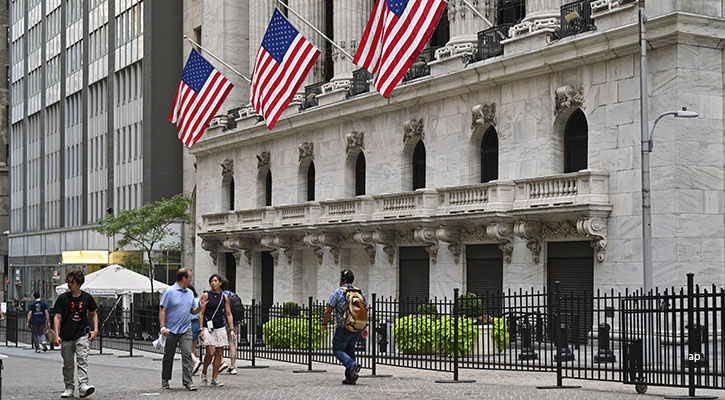Winners of the Morningstar Fund Award are recognized as funds that have added the most value within context of a relevant peer group for investors over the past year and over the longer-term.
To help our readers better observe what makes a fund a winner fund, we sent out questionnaires to the winning fund teams earlier and asked them to shed lights on their team structure, how various risks have affected their investment decisions, and the major portfolio changes over last year, etc.

Category Winner: Best Greater China Equity Fund - First State China Growth Fund (Class I)
Key Stats
Inception Date: 1999 Aug17
Morningstar Rating (as of 2014-02-28):




Total Net Assets (Mil, as of 2014-02-28): 114.69 USD
Manager: Martin Lau / Xian Quanqiang
Manager Start Date: 2002 Apr1 / 2013 Jul1
M: Morningstar F: First State China Growth Fund (Class I)investment team
M: Could you highlight any major changes you made to the portfolio over the course of 2013? Were there any particular holding that drove the fund’s performance for the year?
F: Our funds are all long only and we take a long-term view, so one-year performance is inevitably misleading. Because of this long-term approach our portfolio turnover tends to be very low – on average it’s about 20-25% - the average holding period is four-to-five years. One of the major criteria for investing, because we take such a long-term view, and we take a rather philosophical view to investment as well – is that there is a strong focus on quality.
Most of our outperformance comes from down markets, and that’s why we’re known as a bear market operator rather than a bull market operator.
As we don’t really look at the benchmark, our performance at times could deviate quite a lot from the benchmark as well. In 2013, we benefited from strong performance of some of our top holdings. For example our exposure to gas distributors like ENN Energy and China Resources Gas has done well, as China targets to reduce pollution through more usage of natural gas.
M: Can you comment on the risks facing the global economy, including the tapering of bond buying in the US and the growth headwinds facing the emerging world? How do these risks affect your investment decisions?
F: The Asia Pacific region will continue to be influenced by the global environment. We are concerned about the longer term impact of quantitative easing and the creation of asset bubbles inflating valuations to unsustainable levels. When tapering happens, riskier asset classes like emerging markets or China will be affected.
We are also worried about debt levels across the world and the vulnerability of individuals, companies and governments to an increase in interest rates which is more rapid than expectations. In China we have particular concerns about the build-up of debt following the large extension of credit in response to the global financial crisis with debt/GDP rising substantially since 2008. As a result, Chinese banks have become among the largest in the world.
As always, political risk remains a concern with growing pressure for a less autocratic form of government in nations such as Burma, China and Vietnam. The introduction of democracy rarely happens without a painful period of transition and the unpredictable regime in North Korea continues to be difficult to second guess.
We invest in companies rather than countries or sectors. We believe the Asia Pacific region continues to offer high quality companies with strong management which are in rude financial health.
Asia Pacific companies should continue to benefit from high levels of growth (above Western economies), although below those seen over the last two decades. This should provide a positive environment to boost sales and deliver profits growth. The expansion of the middle class in countries such as China, India and Indonesia should continue to boost consumption.
Many companies in the region are expanding further afield, transforming themselves into global enterprises with headquarters in Asia, and providing a more diversified earnings profile. Controlling families and other major stakeholders of listed entities do not always treat minority shareholders as well as they should, but corporate governance and stock market regulation have undoubtedly improved.
In terms of the emerging world, “ The ‘free money’ of quantitative easing makes global emerging market (GEM) equity investing harder not easier because it allows poorly structured economies to postpone reform. The most obvious example is those countries with large current account deficits funded by flows of short-term foreign money (Turkey, Indonesia, etc.). Quantitative easing has tempted many otherwise conservative companies to take on cheap debt, often in the wrong currency. This increases the long-term risk of being an equity owner and means we struggle to own some companies we used to admire for their conservatism.
Because of the above points, we would welcome ‘tapering’ notwithstanding that the short-term effect may be negative for many GEM currencies and company valuations.
As bottom-up stock pickers we spend the vast majority of our time thinking about companies and relying on their management teams to navigate an inherently unpredictable world. Our investment philosophy remains the same whatever market conditions. We continue to invest in quality companies with strong business franchises and excellent management which are in robust financial health and trading at reasonable valuations. We believe that this should continue to provide positive returns for clients over the medium to long-term.
M: How is your investment team organized? Have there been or do you anticipate any changes to the investment team or structure over the course of the year? Do you anticipate adding to the team in the near future?
F: Greater China equities form an important part of the First State Asia Pacific and Global Emerging Markets flagship funds. As such, the entire Asia Pacific / Global Emerging Markets equities team play an active and essential role in the decision making process. The investment team consists of 30 members based in Edinburgh, Singapore and Hong Kong. Each fund typically has three fund managers – a lead manager, co-manager and deputy manager – in an effort to minimise continuity risk.
Our team approach means that all members of the team participate in debating and researching ideas. First and foremost everyone on the team is considered an analyst and this includes all portfolio managers where they do not have portfolio responsibilities. We try to question each other constantly. We do not believe in a ‘silo mentality’ and expect every analyst could form a view on a company having met it – after all every analyst is personally exposed to every stock in the portfolios. We try not to be hierarchical so that every analyst can affect stock discussions. The more views we have the better. While individuals are sometimes assigned specific geographical/sector responsibilities, all members are encouraged to be as broad as they want. There is no defined scope of roles within the team – different people prefer different levels of breadth in their coverage and have different interests. It is much more important that analysts bring genuine insight to their chosen areas.
M: Can you highlight any areas where you feel that the investment team or the investment process can improve upon?
F: Over the last 10 years we have worked hard on reducing succession risk and broadening depth and experience of the team. Over next 10 years, we need to make sure the younger people on the team continue to develop, feel challenged as well as to challenge the status-quo. This is the reason why we have embarked on new areas like China A shares and Japan.
We have a strong investment philosophy and sometimes we can be stubborn. The team is highly experienced and as a result tends to be conservative. For example, we have missed quite a number of internet opportunities. Again the younger people on the team can help us identify what we could have potentially missed.
Click here to see other winner features.

















